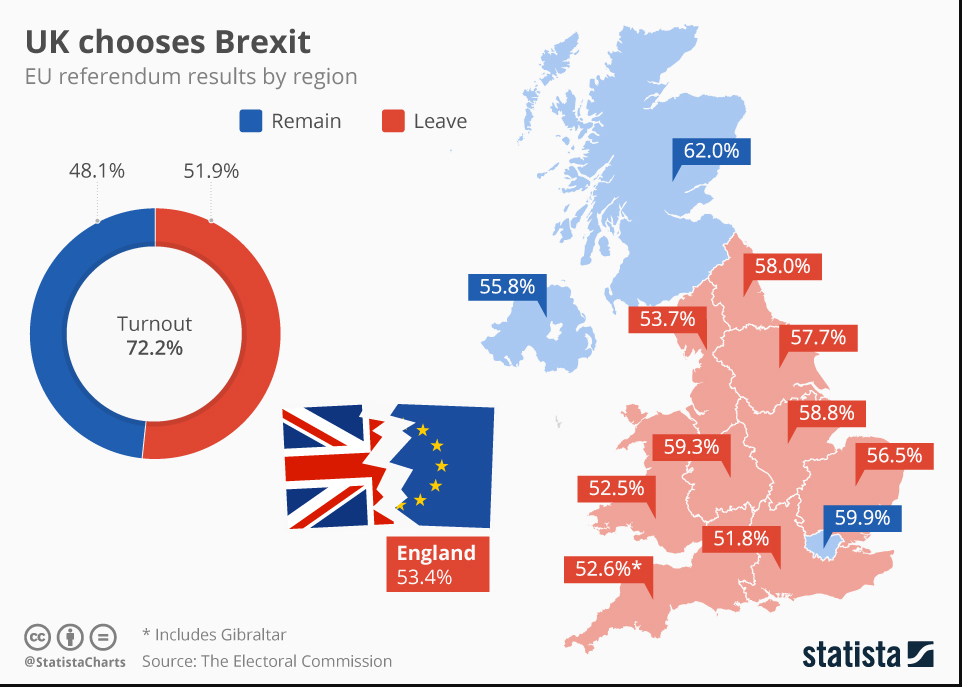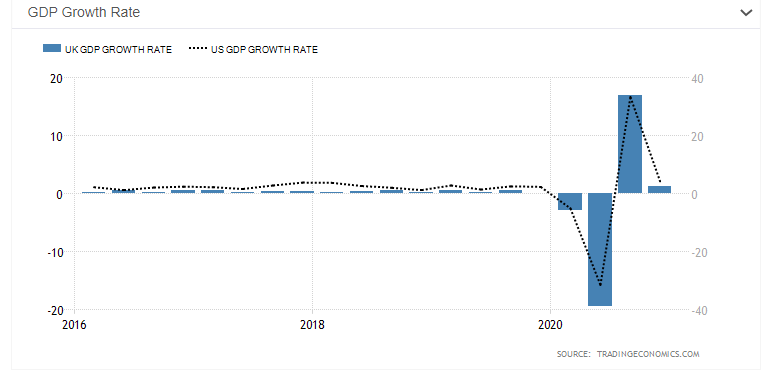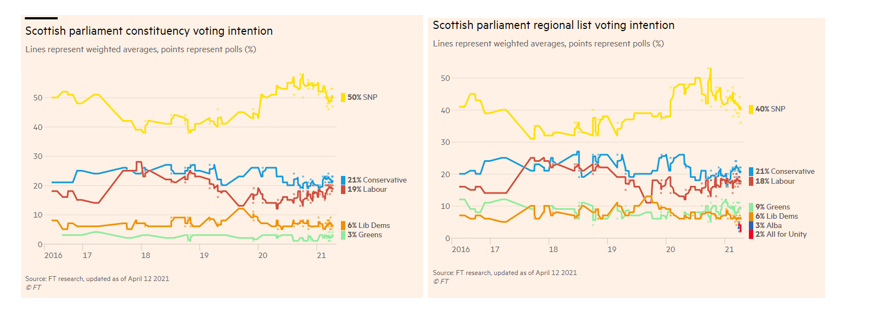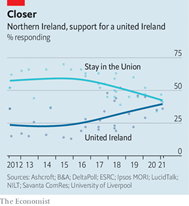
The United Kingdom’s future is not just a question of how it develops outside the European Union but if it survives in its current form. Boris Johnson and and his England-centric administration are being tested by increasing demands for independence from Scotland, Northern Ireland, and even a pro-Brexit Wales. Will he rise to the occasion?
There isn’t much time left for Johnson to sing a bit of Rule, Britannia! and get the other countries in line before Scotland votes on 6 May for a new parliament or violence becomes entrenched again on the island of Ireland.
I’m going to go out on a limb and say that even if he had a lot of time, that little diddy might not hit the right note.
While we wait to figure out the UK’s new global role outside of the EU, will we find out the old UK is gone forever? Instead of a new independent UK will will be trying to slot not only a significantly diminished UK but an independent Scotland and a unified Ireland into the world as well?
The UK left the EU to assert its sovereignty and regain some fictional past of all mighty glory and abundance. However, it may be the nail in the coffin of the 314-year union. Scotland and Northern Ireland remind everyone then can that they did not vote for Brexit and that Westminster increasingly does not serve its interests. Even the pro-Brexit Wales is finding the Johnson administration’s England-centric policy and behaviour trying.

As the UK tries to assert itself again as an independent global leader, the Johnson administration needs to recognize the value in the unity of the four nations. The inability of Johnson to make policy for the whole country begs the question of how the UK will fare in its recovery plan and what growth looks like going forward.
The UK isn’t unique in its big-spending to counteract the pandemic. Its economic contraction and expectations for growth aren’t out of line either. It is unique that it will face the Brexit fallout at the same time, but the Johnson administration isn’t trying to separate the two ills anytime soon.

Economic realities don’t weaken the desire for independence; it seems to strength the desire to plot one’s own course. Scotland and the UK in general were in a better place when the first independence referendum went to the Scottish people in 2014. Today, an independent Scotland would only have harder choices to make to come to a respectable deficit level but that isn’t damping the emotion.
Just like many a referendum, it is more personal politics than economic motivation in these questions. We won’t have to wait long for an answer. Scottish and Welsh elections will be held in less than a month. Polling suggests the possibility of a rare Scottish National Party (SNP) majority in Scotland or at least a pro-independence majority.
Elections in Scotland and Wales are unique in their structure; they meant to avoid easy majorities by design. There are ‘constituency’ representatives, elected using the first past the post voting system and ‘additional’ representatives elected based on the proportion of votes a party secures in a region comprising several constituencies. This structure and the possibility of an SNP majority speaks to the strength of the Scottish independence movement at this time.

On top of elections in Scotland and Wales, a wave of violence has erupted in Northern Ireland as it marks the century of the creation of Northern Ireland.
There are many competing inputs and a mix of history, current circumstances, and just time of the year that contribute to the current spat of violence. There is so much more history about the island of Ireland, the creation of Northern Ireland, the Troubles, and the Good Friday Agreement than I can explore here but please see some links at the bottom of this document. It is such a more nuanced history than what I learned through Hollywood or the American school system (unfortunately sometimes one in the same) but one that has shown its propensity for violence and shouldn’t be dismissed by Westminster.
Today the unexpected strict interpretation of the Northern Ireland Protocol by the EU, the unprepared UK, the emotional turmoil created by the border in the Irish Sea, and the quickly approaching the 100 yr anniversary of the creation of Northern Ireland have conspired to bring forth a much more balanced debate and support for a reunified Ireland. And violence.

These separate events across the UK challenge the England-centric Johnson but he’s only offered pithy remarks and brighter Union Jack flags in reply. His one-liners from the Brexit campaign on the greatness of the UK ring a bit hollow now.
Johnson does and doesn’t have time on his side. The Scottish, Welsh, and island of Ireland politicians are already fighting for their self-determination and it will be hard to put their ambitions back in the bottle.
However, the pandemic has created the acceptance of deficits to support the recovery so there is an arsenal of resources to paper over the cracks with short-term spending.
The question remains is Johnson going to continue with his restrictive view of the UK, ie London, or try to woo the hinterlands into cooperation? I’m betting that he remains short-sighted in both his actual vision and his ambition for the UK or whatever we call it when it is only England and Wales. We’ll have to temper our outlook for the UK as well. Thank goodness it looks good compared to the EU.

Sterling never recovered from either the first Scottish independence referendum or the Brexit vote until recently. (First red square and 2nd red square).
Feel free to file under: WHAT WILL THEY SING AT PROMS?
https://www.newyorker.com/magazine/2015/03/16/where-the-bodies-are-buried
